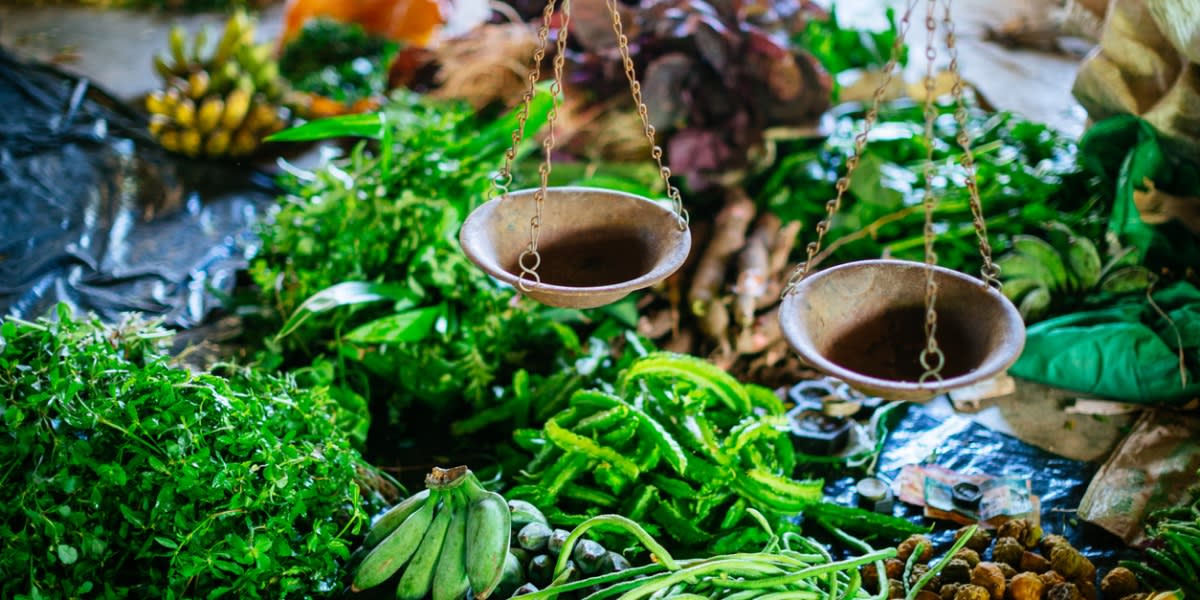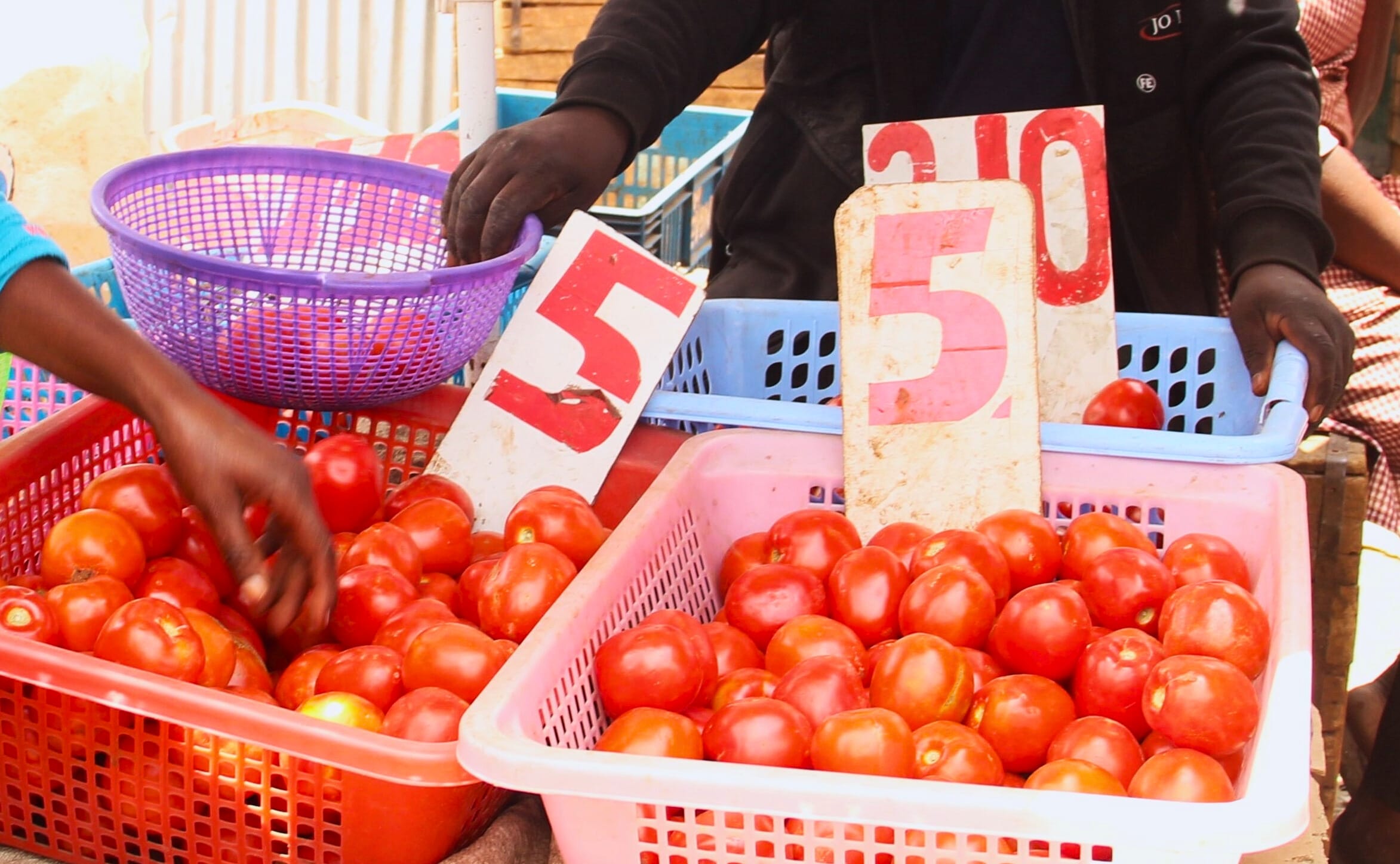The Hidden Power of Trade: How it Became the Elephant in the Room
Ulrich Hoffmann calls for integrating True Cost Accounting into trade policies to balance economic gains with environmental costs and safeguard vulnerable stakeholders like farming communities in global food value chains.
by Ulrich Hoffmann | 2024-11-22

Agriculture is far more than a typical economic sector limited to producing food, fibre, and biofuel. While its contribution to GDP may be as low as 1.5% in developed nations and around 9-10% in developing countries, and it accounts for no more than 8% of global trade value, its developmental, social, and environmental significance is considerably greater. When factoring in agriculture's role in poverty reduction, ecosystem restoration, landscape preservation, and the maintenance of groundwater, air quality, and biodiversity, its true value becomes clear. Agriculture also plays a pivotal role as source of and for mitigation and adaptation to climate change.
If farming were done in a truly reproductive and thus sustainable way, it would largely be autonomous (based on closed nutrient cycles and the integration of crop farming and animal husbandry) within the confines of local resource endowment and limits in accordance with agro-ecological principles. Nevertheless, international trade would be indispensable as it performs several key tasks:
It helps to rebalance the structure and quantity of agricultural consumption to match production;
It overcomes problems related to crop failures and bumper harvests, including caused by natural disasters or political conflicts;
Through international trade comparative and absolute cost advantages can be realized that may improve the income and livelihoods of concerned farmers; and
International trade can stimulate technical, technological, and managerial innovation.
Almost a quarter of agri-food production in developing countries is internationally traded. However, if one takes into consideration the significant share of agricultural production that is not part of the monetary economy in these countries (subsistence agriculture often represents half and more of total food production), the international trade intensity of the agri-food sector is likely to be below 10% of total production. Such a low figure might suggest that international trade and its rules may have little significance for food production. Yet, in reality the opposite is the case.
Farmers are not encouraged by current market signals, including the international trade rules to be land, groundwater, soil and biodiversity stewards. On the contrary, modern-day farming has removed much of the land husbandry and stewardship that should be an integral part of a regenerative farming system. Prevailing market forces and international trade rules encourage agricultural production that is – with few exceptions – entirely modelled after an industrial model, with a mechanistic view of nature and an external-input-intensive production approach, largely divorced from its ecological and location-specific context. Furthermore, international trade and free movement of capital force farmers into the treadmill of achieving absolute cost advantages through specialization and agro-industrial mass production that results in economies of scale. Frequently, this locks conventional farmers into costly technological (but often environmentally unsustainable) pathways, from which it is difficult or impossible to escape. The cost treadmill leads to specialization and concentration of farmers favouring large agro-industrial production units. By way of illustration, EU-wide the number of agricultural producers fell from 14.4 to 9.1 million, i.e. by 37% in the period 2005 – 2020.* This is a global trend, although statistical figures are hard to find for developing countries.
After energy, agricultural markets are the second most cost and price-distorted globally. For example, many public subsidies fund large-scale production that rely on heavy, usually energy-intensive external-input use, rather than remunerating the generation of environmental goods and services (i.e. according to the concept of public money for public goods). The productivity of industrial agriculture is thus artificially boosted, because these subsidies make it appear more efficient and economically viable than if all environmental and social costs were considered. This makes it necessary to redefine productivity from a sustainability perspective. However, it is not sufficient to simply redefine productivity conceptually. We must also redesign the economic system itself, which currently promotes a distorted view of productivity – one that prioritizes high output without fully accounting for environmental and social impacts.
Since the liberalization of national and international markets in the mid-1980s, the role of governments in shaping national agricultural policies and global agro-food trade has diminished. This shift has allowed large agribusiness and trading corporations to gain significant control over both the supply of agricultural inputs (like seeds, fertilizers, and pesticides) and the trade, processing, and marketing of agri-food products. These companies have shaped these input and output markets in ways that often disadvantage farmers and are characterized by a huge power disequilibrium. In other words, based on the industrial farming logic, agriculture has become external-input-addicted, subject to a cost-treadmill and shaped and dominated by powerful commercial interests. Moreover, through international trade, agricultural markets have become intertwined with those of energy, industrial fibers and (speculative) finance (through commodity exchanges) and are thus also exposed to related interests and profit expectations.
The decline in food prices since the mid-1970s has prompted international financial institutions and other bilateral donors to encourage developing countries to modify their food production patterns – shifting from the production of staple foods to cash crops for export (notably fruits, vegetables and cut flowers) and using the thus generated increasing export revenues to import cheap (often subsidized) staple foods from the international market to meet domestic consumption. This strategy also re-directed private and public agricultural investment, which gradually undermined the national capacity to produce food for the domestic market. However, high dependence on food imports exposes producers and consumers to increased vulnerability both to deteriorating terms of trade and to fluctuations and volatility in commodity prices. Such situations significantly reduce the ability of countries that are highly dependent on international trade and imports to buffer external shocks, such as overproduction or harvest failures in other countries.
A worrying side effect of increasing food import dependence is the tendency that local eating habits of consumers change towards ‘westernized diets’, including increased consumption of junk food, leading to public health problems such as diabetes and obesity.
All these developments pose major challenges for small-scale farmers, related cooperatives and marketing organizations as well as for agro-ecological production in general. The integration of farming into global markets has numerous side effects, some of which may have far-reaching implications. For example, modern markets and global competition force farmers to adopt uniform high-yielding plant or animal varieties. But when food producers abandon diversity, valuable traditional varieties and breeds may die out, along with their unique and specialized traits. For the poorest farmers, biodiversity can be a crucial defence against hunger.
The rules of the World Trade Organization (WTO), along with related bilateral, regional and plurilateral liberalization agreements (outside the WTO) significantly affect agricultural production, trade and consumption. These impacts arise from trade disciplines – covering market access and export competition – as well as provisions on domestic governmental support, which aim to be minimally or non-trade-distorting wherever possible. Environmental and social sustainability issues are considered “non-trade concerns” within the WTO framework, meaning any policies addressing these issues should ideally be not or least trade-distorting. Despite ongoing negotiations since the early 2000s in the WTO's Doha Round, the trade rules governing agriculture (both under WTO disciplines and additional rules found in bilateral, regional, and sectoral agreements) still exert substantial influence, often limiting national sovereignty over agricultural policy choices. Nevertheless, the existing flexibility mechanisms in the WTO’s Agreement on Agriculture and those currently being negotiated in the WTO Doha Round allow interested and determined governments to pursue policies that foster food security, sustainable rural development and a truly sustainable transformation of agriculture, including agro-ecological production, provided there is sufficient political will.
Connecting this to True Cost Accounting (TCA), trade incurs direct environmental costs, e.g. resulting from transport and other logistics, but it also causes a wide range of indirect costs that are more important. These indirect impacts stem from shifts in food production structures towards large-scale, industrial, and high external-input (often energy-intensive) models, which tend to undermine local diversity and food security. In addition, the rules of the WTO Agreement on Trade-Related Aspects of Intellectual Property Rights (TRIPS) regarding intellectual property and plant rights tend to disadvantage traditional breeding methods and rights, including traditional farmers’ knowledge, and tend to undermine the preservation of local biodiversity.
As stressed in the CLIF report, “Integrating TCA into international trade policies can help ensure that the economic benefits derived from trade are balanced against the environmental and social costs and prevent the shifting of burdens to less powerful stakeholders within the global food value chains, such as farming communities and agricultural workers. The WTO Agreement on Fisheries Subsidies, adopted in 2022, which aims to eliminate harmful subsidies that contribute to the depletion of global fish stocks, is a step in the right direction as it aims to mitigate the negative environmental impacts of food production.” Some previous attempts to reflect part of ‘hidden’ costs in internationally traded goods have however had little success. For instance, this concerns discussions on border-tax adjustment for traded carbon-intensive products or the mutual recognition of national or regional carbon-offset trading schemes.
However, the potential of TCA as an analytical instrument and practical tool in international trade-related issues is currently overshadowed by profound geopolitical tensions. These tensions are causing significant fragmentation in global trade and finance, bringing with them substantial costs that could reach up to 10% of global GDP—an exceptionally high figure from a historical perspective. This fragmentation also undermines efforts to address critical global challenges, including climate change, related health issues, and migration.
*See: Höfesterben extrem: Mehr als 5 Millionen Landwirte in der EU geben auf | agrarheute.com
**Klaus, L. M., Riemer, O. & Müller, A. (2024). Changing the Equation: Leveraging True Cost Accounting to Accelerate Agri-Food Systems Transformation. In FORESEE (4C) – The Transformation of Agri-Food Systems in Times of Multiple Crises (4 Cs: Climate, Covid-19, Conflict, Cost of externalities). Berlin: TMG – Think Tank for Sustainability. Report 5. p 21.
***For an elaborate review see: Gopinath, G., First Managing Director of IMF, Standford Institute for Economic Policy Research, presentation on geopolitics and its impact on global trade and the dollar, Series on the Future of the International Monetary System, 2024
 Land GovernanceDec 18, 2025
Land GovernanceDec 18, 2025Land tenure, women’s land rights, and resilience: Reflections from CRIC23 toward UNCCD COP17
Our experts discuss what the exchanges at CRIC23 highlighted and revealed about the role of secure and gender-equitable land tenure in the UNCCD's work ahead of the 2026 triple COP year.
Frederike Klümper, Washe Kazungu
 Urban Food FuturesDec 09, 2025
Urban Food FuturesDec 09, 2025The story of Mukuru's Urban Nutrition Hub
In Mukuru informal settlement, a safe haven for women has grown into the Urban Nutrition Hub, a multi-purpose space for nutrition education, training, and community development, demonstrating the potential of grassroots community-owned innovation..
Serah Kiragu-Wissler
 Urban Food FuturesSep 29, 2025
Urban Food FuturesSep 29, 2025Cheaper food, higher costs: The paradox of Nairobi’s food systems
What are the hidden costs of foods sold in Nairobi's informal markets, and who must bear them? We discuss how the city could build food systems that are both affordable and fair—for consumers and the people who feed them.
Christian Sonntag, Emmanuel Atamba, Lumi Youm


